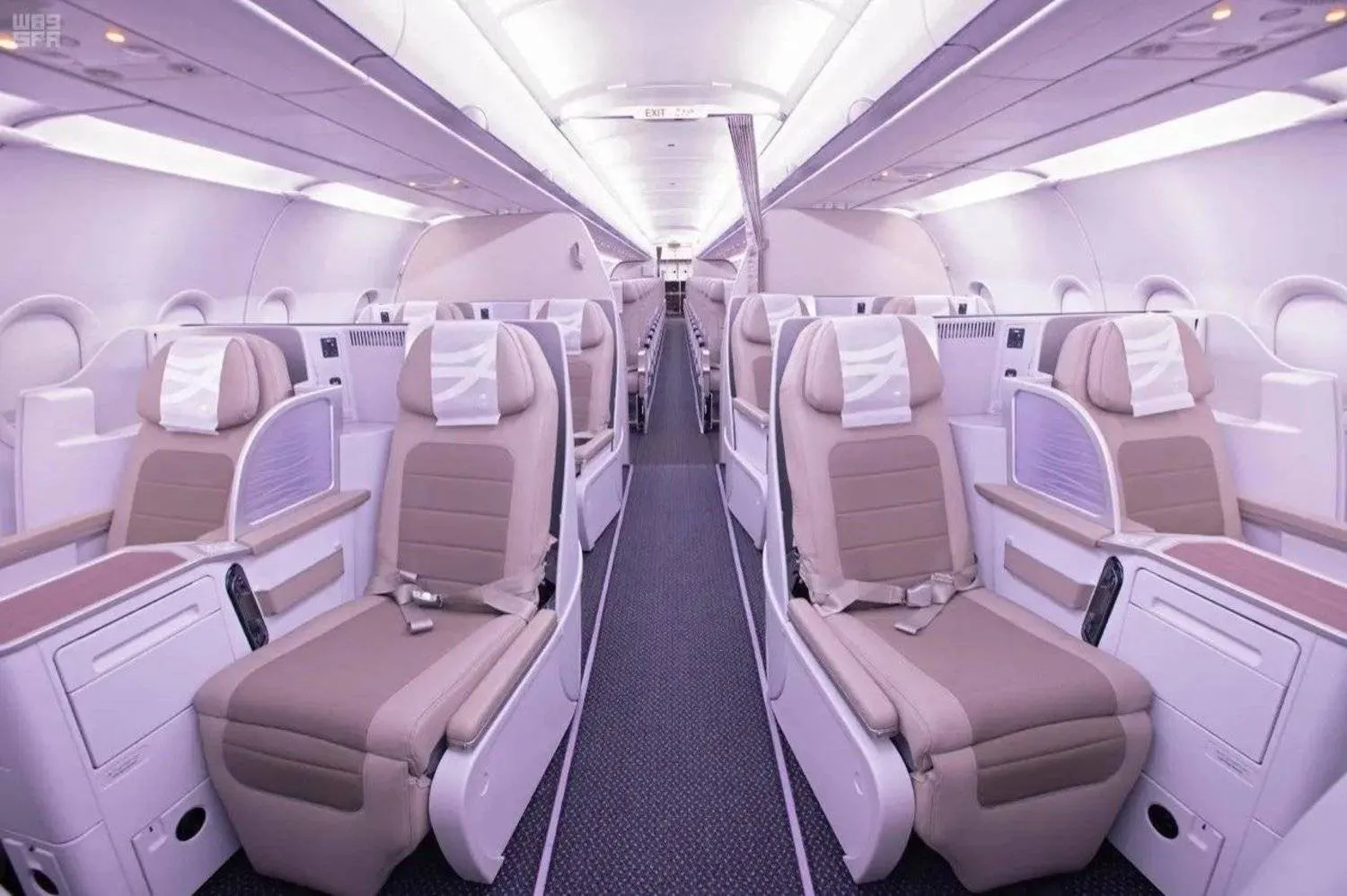Saudi air carriers are moving to increase their fleet of narrow-body aircraft to expand short-distance regional flights, due to high demand.
This move comes within the framework of the national civil aviation strategy, which aims to reach 330 million passengers and 100 million tourists, while increasing the number of international destinations linked to the Kingdom to more than 250, by 2030.
Narrow-body or single-aisle aircraft are designated for nearby destinations, as they fly for a period ranging between 4 and 6 hours and carry up to 250 passengers.
Some of the most popular manufacturers of single-aisle aircraft are Boeing, Airbus, De Havilland, Tupolev and McDonnell Douglas.
Riyadh Air, which is wholly owned by the Public Investment Fund (PIF), intends to conclude a deal to purchase a large number of narrow-body aircraft, according to the company’s CEO Tony Douglas.
Douglas revealed that the company will operate a fleet of 200 aircraft to serve more than 110 destinations by 2030.
For his part, Assistant General Manager for Fleet Management at the Saudi Arabian Airlines Group, Saleh Eid, announced on Monday the signing of the largest aircraft deal in the company’s history to purchase more than 150 narrow-body aircraft before the end of 2023.
Flynas, the Saudi economic air carrier, recently received five new A320neo aircraft of this type, raising the size of its fleet to 56 aircraft, and bringing the number of narrow-body aircraft it received during 2023 to 11 out of a total of 19 aircraft that are scheduled to be delivered later this year.
In remarks to Asharq Al-Awsat, experts said that increasing the fleet of narrow-body aircraft serves the Kingdom, given its geographical location and that the connection with many international airports in less than seven hours.
They added that this move will achieve the Kingdom’s goals of reaching 100 million visitors in 2030, and expanding air connectivity with various countries of the world.









